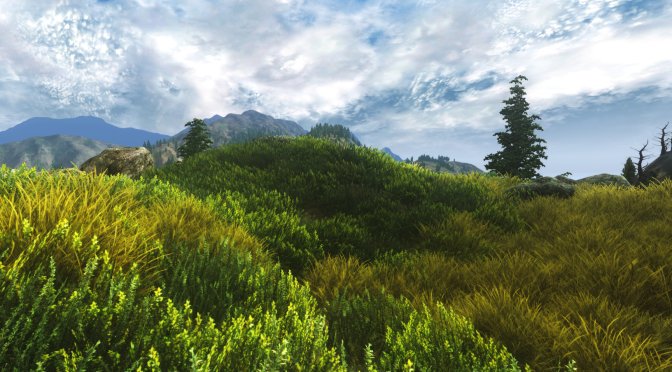Digital Dreams has shared a video, showcasing The Elder Scrolls IV: Oblivion in 8K with over 200 mods and Reshade Ray Tracing. In order to capture this gameplay footage, Digital Dreams used an NVIDIA GeForce RTX 3090.
Now the good news here is that the YouTuber has shared the list of mods that they have been using. So, if you want to make the game look similar to the video, you can download the Heartland Modlist from here. Naturally, Digital Dreams also used Marty McFly’s Reshade Ray Tracing. By using it, you can enhance the game’s Global Illumination and Ambient Occlusion. Thankfully, Oblivion is also compatible with the NVIDIA Freestyle, meaning that you can use NVIDIA’s Reshade-like Ray Tracing effects.
For a game that came out in 2006, this modded version of Oblivion looks fantastic. Distant objects look of course blurry, mainly due to the way the game’s engine handles LOD. This was also one of the game’s biggest issues at launch. Still, and as I said, for a 2006 game it looks excelent.
Speaking of 8K videos, here are Just Cause 3, GTA 5 and Crysis 3 running in 8K. You can also find Assassin’s Creed Valhalla, Assassin’s Creed Origins and Skyrim in 8K. Oh, and we have also shared 8K videos for Red Dead Redemption 2, Batman Arkham Knight, Battlefield 1 & Metal Gear Solid 5, as well as Diablo 3, Battlefield Bad Company 2, COD: Modern Warfare, RIDE 4, Halo Remaster, Forza Horizon 5, The Witcher 3, Final Fantasy 7 Remake, Monster Hunter Rise and Horizon Zero Dawn.
Enjoy!

John is the founder and Editor in Chief at DSOGaming. He is a PC gaming fan and highly supports the modding and indie communities. Before creating DSOGaming, John worked on numerous gaming websites. While he is a die-hard PC gamer, his gaming roots can be found on consoles. John loved – and still does – the 16-bit consoles, and considers SNES to be one of the best consoles. Still, the PC platform won him over consoles. That was mainly due to 3DFX and its iconic dedicated 3D accelerator graphics card, Voodoo 2. John has also written a higher degree thesis on the “The Evolution of PC graphics cards.”
Contact: Email

